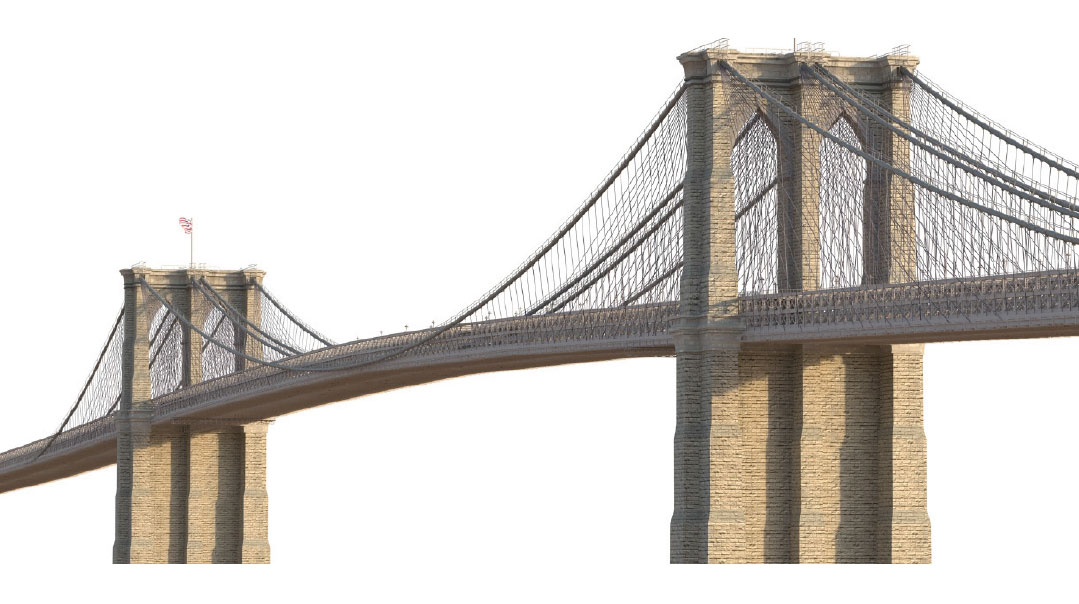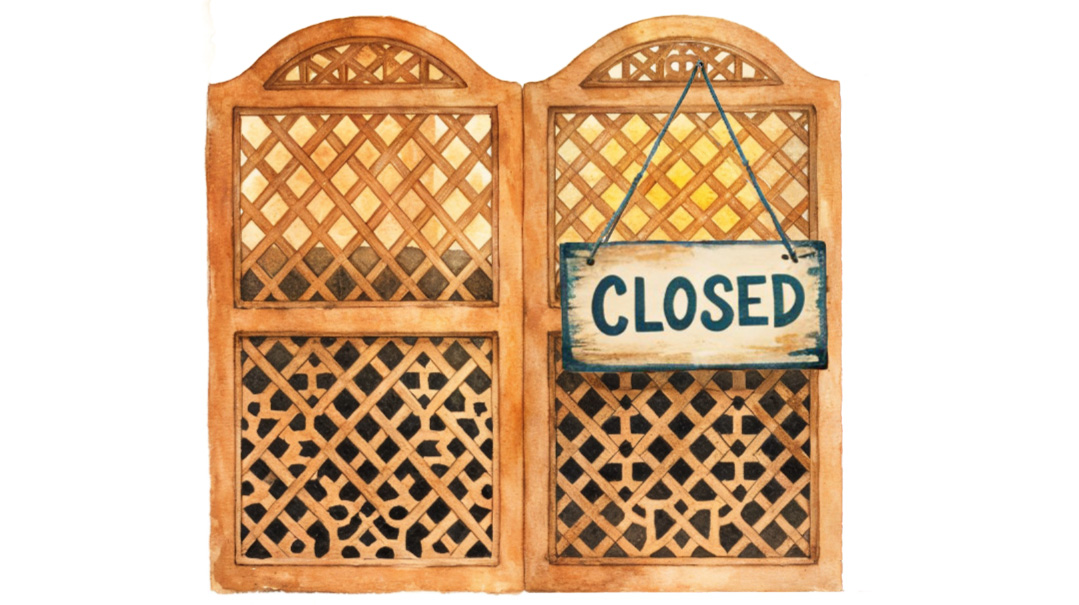Crossing the Brooklyn Bridge
| January 22, 2020Four months into aveilus, life has fallen into a pattern

Crossing the Brooklyn Bridge is a rite of passage for many.
They come from all over, mostly tourists who have one thing in common — an obsession for this unlovely city by the river. They swarm across, by car, on foot, on bikes and scooters.
I remember the first time I drove over this bridge myself, across the span to the tight turn onto FDR Drive. It was so high, it reminded me of the impossibly steep hills on the roller coasters of my youth, and for a second I feared my car would fly straight off the side, falling end over end into the river below.
The bridges that connect Manhattan and Brooklyn are inextricably entwined with my childhood. Some of my earliest memories revolve around Sunday afternoon visits to my grandparents who stuck it out on the Lower East Side long after the great migration to Boro Park and Flatbush happened.
We’d visit their store, a wholesale business on Grand Street, and I’d sit on the tall chair behind the counter and contemplate the fascinating old-fashioned cash register that chimed when opened. I longed to open it myself, but was never allowed to. My grandfather would pinch my cheeks so hard, his strong fingers left a mark. I can still feel it.
I remember crossing the bridge in my father’s car. We didn’t go on many outings or trips, but crossing the bridge always felt like an event to me. The bridge was high, and I had a vivid imagination. For a moment I would entertain frightening thoughts. What if there was an accident? What if the bridge suddenly broke in half? But then I’d look at my father in the driver’s seat. He drove surely, confidently. And I’d push the thoughts away.
Crossing the bridge is painful now. Time has gotten away from me, a kite on a capricious wind, and I’m now a grandmother. My grandparents, those tough, indestructible Galitzianer Jews, are gone; my sweet American grandparents a memory, too. And fresh and raw is the loss of my father, too young at 74 to be gone. He, too, has crossed over to a place where I cannot see him, receding into the distance.
Four months into aveilus, life has fallen into a pattern. I attend few simchahs, and I live life at a slower pace. Shopping is pared down to a minimum, and there is time to contemplate. I speak to my bereft mother several times a day. She is brokenhearted, but functioning. She will never get over this, but eventually will learn to live with it.
The acute sorrow of the very beginning stages of aveilus has dissipated. I don’t cry every day anymore. But painful reminders of my bereavement crop up everywhere. It could be in the grocery as I try to decide which ice cream to buy for Shalosh Seudos. I remember how my father would take the time to stop by in his car after work during the summer months. We’d schmooze in the car, companionably, easily, for a while. Then he’d hand one of my children a 20-dollar bill with instructions to buy ice cream for Shabbos. There is no one to do that anymore.
Then there are the times I want to vent my frustration about my kids’ shidduchim. My father was always my sounding board, a nonjudgmental, supportive presence. I pick up the phone to call him — and then I remember. I slowly put away my phone. How can it be that I will never hear his voice again?
Worst of all are the times when I forget for a while. It feels like a betrayal, like it’s too soon to feel happy. But then the loss comes rushing back, sometimes in the strangest of places. The sight of the closed seforim in my mother’s house, a man passing at a distance who resembles him. In the grocery as I reach for the matzah meal and see the brand he always used. He used to make the knaidlach for Shabbos; it was a hallowed tradition. It strikes me to the heart that he will never take part in preparing for Shabbos again.
Every time I cross the bridge I think of him. As I look down at the greenish-gray water flowing below me, I’m a young girl in the back seat again.
I think about the way my father made me feel secure, how his values and ethics formed my view of the world. How his strength gave me the courage to cross my own bridges, to become who I am. He is my foundation, cemented permanently into my heart and mind, still alive in me, as unshakable as the Brooklyn Bridge.
(Originally featured in Family First, Issue 677)
Oops! We could not locate your form.













